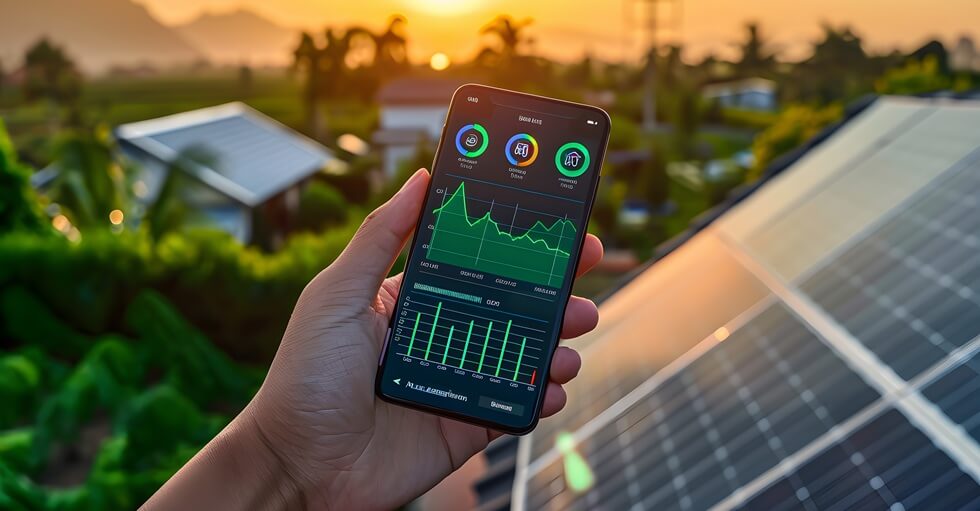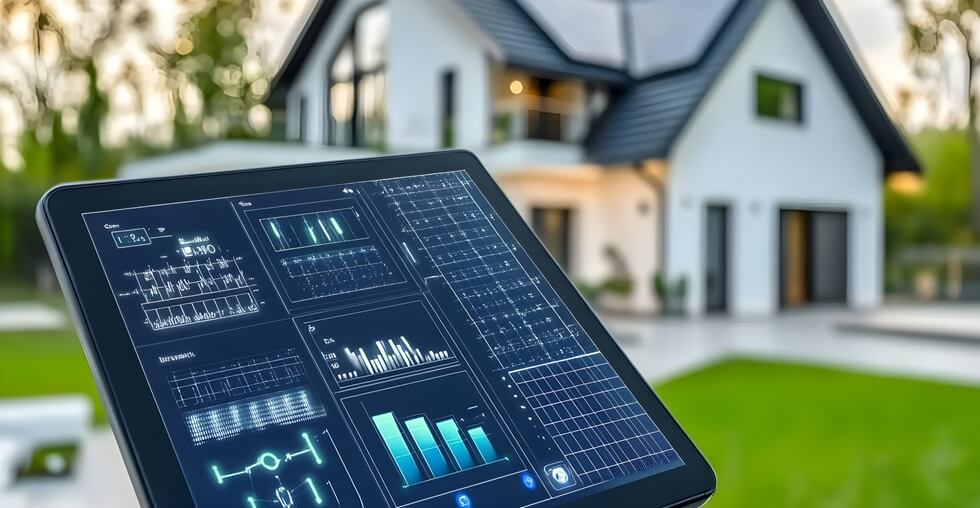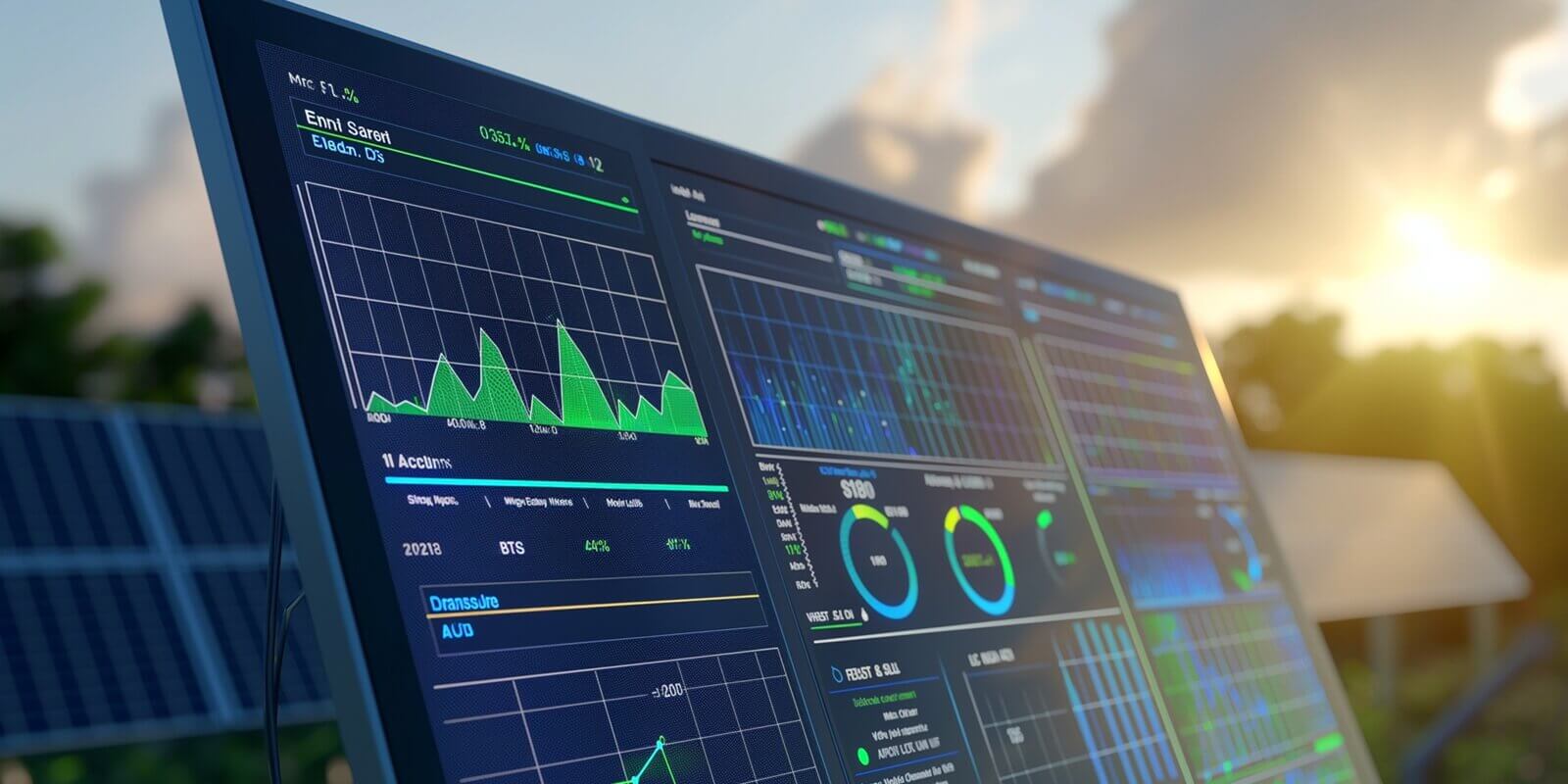Residential solar panels have the ability to transform the way a home uses energy, reducing that home’s carbon footprint and decreasing or even eliminating energy bills. However, many homeowners are not entirely sure just how much they are getting out of their solar system, especially after the panels have been used for a few years or when it is cloudy or raining. This is where a solar monitoring system can be useful.
From understanding the efficiency of solar panels to helping homeowners make smart decisions about how to care for their arrays, a solar monitoring system has many uses. When selecting a system, be sure to consider numerous factors that indicate the reliability and usefulness of that specific monitoring device.
What Is a Solar Monitoring System?
A solar monitoring system is a tool that connects directly to a solar array. Then, from either an interface in the home or an app on a mobile device, homeowners can review how much energy their solar panels are creating each day (or at different times of the day), as well as what functions that energy is being directed toward within the home. Some systems can also indicate when a panel is experiencing an issue, leading to less downtime to maximize energy production throughout the array’s life.
Choosing the Right Solar Monitoring System for Your Home
Solar monitoring systems are useful for people with arrays of any size to make sure they are getting the most out of their panels. The data collected can also help homeowners reduce energy waste by seeing where the energy they produce goes. Selecting the right solar monitoring system to pair with an array is an important choice; before committing, consider:

The Type of Connection
How the monitoring system connects to the array comes down to preference and, to some extent, what an individual’s home allows. Wireless connection is a convenient option when good wifi is easily accessible, but inconsistent connections can lead to interruptions in service.
Conversely, a wired connection is extremely reliable, but it takes extra installation to hard-wire the system to the array. One potential middle ground that many people like is a monitoring system that utilizes cellular data, but many of these services come with a monthly fee.
Adjustability
Some solar monitoring systems are designed to match a certain number of panels or outputs. Homeowners who select these systems may find, to their dismay, that they need to purchase a completely new monitoring system if they decide to add more panels later.
Because it is almost impossible to predict your energy needs in the future, it is wise to select a monitoring system that includes some adjustability to add more panels or other green energy sources later.
Ease of Use
A monitoring system does little good if the homeowner does not know how to use it! Choose an option that presents information in a digestible way, from how the energy produced is measured to how easy the user interface is to navigate.
Cost
Many people begin their decision-making process with the cost of a solar monitoring system. Do not opt for the least expensive device you can find; instead, consider a mixture of how much it costs and whether it does what you need it to do.
Be sure to also consider extra fees, such as monthly charges for data connection or any services that are unique to the specific monitoring system you select.
Compatibility
While most solar monitoring systems are fairly flexible, not every device will work with every type, size, or arrangement of solar panels. A solar installer can help homeowners understand which solar monitoring systems are compatible with their array so that the money spent on the device is not wasted.
Warranty Protection
Once a homeowner purchases a solar monitoring system, it is only reasonable that they expect it to last for a long time. While a high-quality monitor should last ten years or more with good care, things can still go wrong, and accidents can happen.
Homeowners should review whether the system of their choice comes with warranty protection and what it covers. This small detail could be the difference between quickly repairing the monitoring system free of charge and completely replacing it with something new.

Connect a Solar Monitoring System to Your Array Today
Solar monitoring gives homeowners more insight into how well their panels are functioning, how their home is using energy, and more. However, not every solar monitor is the same, and the right one for your system depends on numerous factors, including what data you want to gather, how much you are willing to spend, and what home infrastructure allows the system to connect to the panels.
If you need professional help choosing or installing a solar monitoring system, the team at Energy Select is here for you. Contact Energy Select to schedule a visit!


